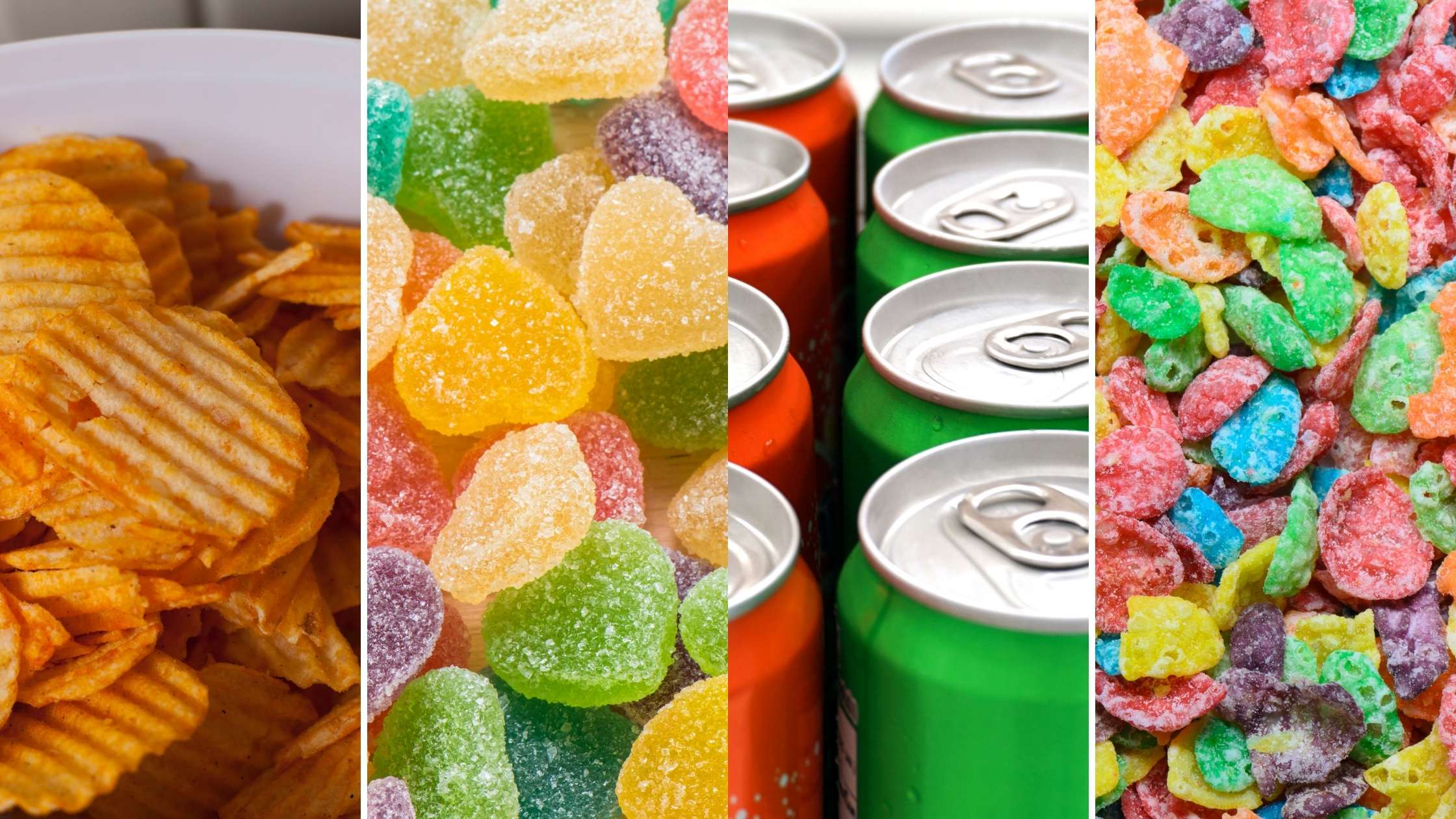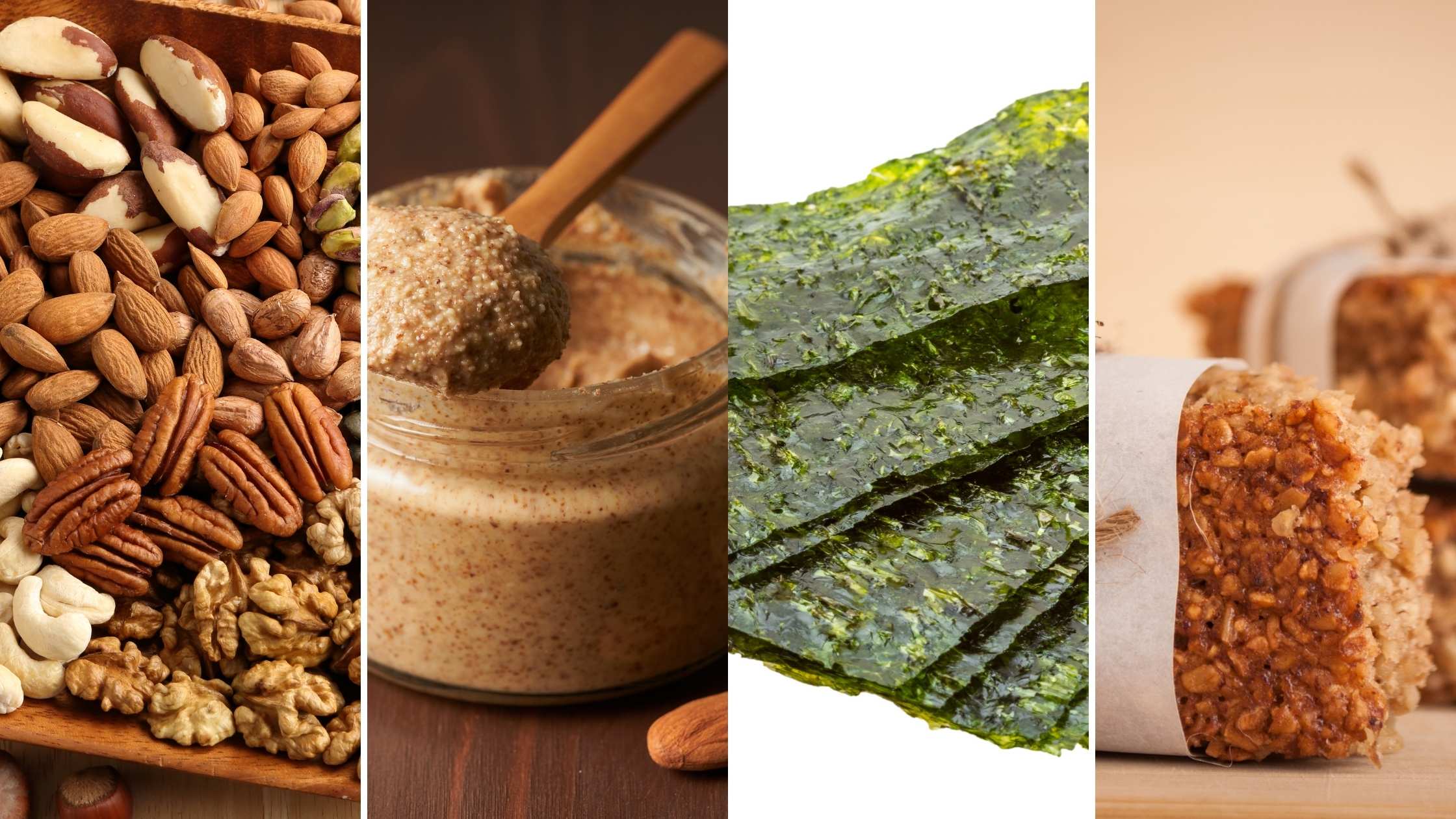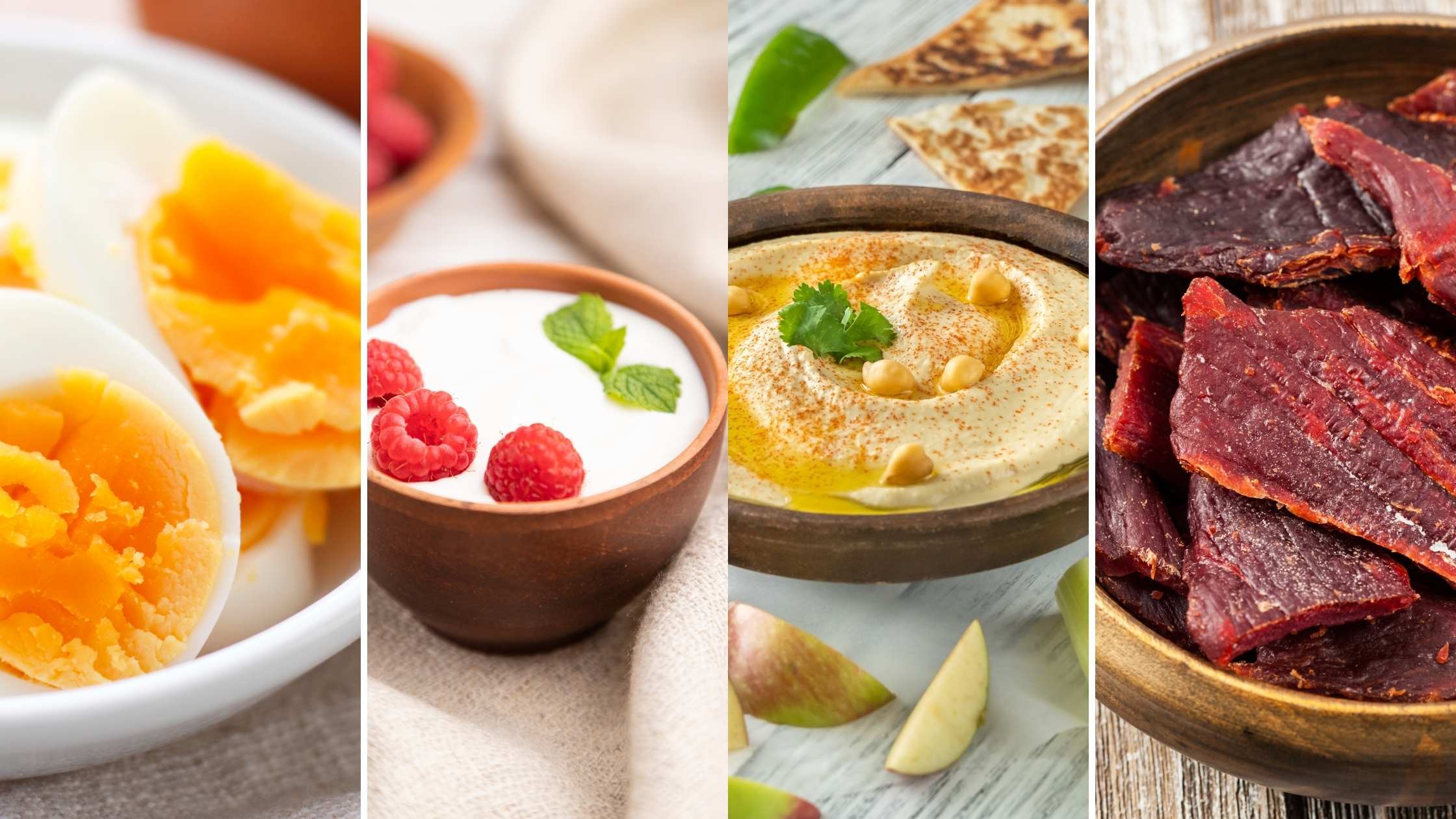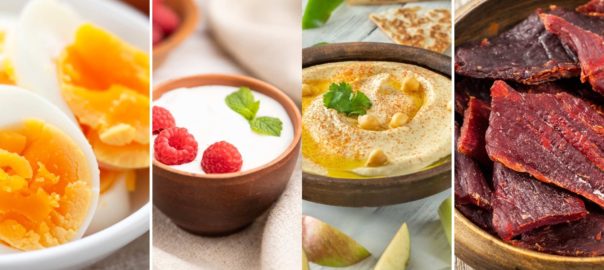Americans have a snack habit. We've become accustomed to eating multiple times throughout the day. Sometimes we snack because we're hungry. But more often than not it's because we are bored, thirsty, or possibly responding to emotional stimuli.
Occasionally we snack because we are on-the-go and are looking for something to tide us over until we can get to mealtime. While there's nothing wrong with an occasional small bite between meals, snacking can become a problem when it fills you up with empty calories. This means things like chips, crackers, muffins, or cookies. Another problem with snacking is if you eat so much that you are no longer hungry by the time you get to the real meal.
Snacks to avoid
When choosing snacks be sure to read the label. Don't choose one just because it says "protein" or "# grams of protein" on the front label. You need to turn the package over and read the ingredients on the label. You also want to avoid the following in your snack products:
- excess sugar (more than 4 g per serving)
- artificial sweeteners
- artificial flavors
- artificial colors
- ingredients you don't understand
- starchy things (tapioca, potato, rice flours, etc)
You may be wondering why things like rice cakes, popcorn, puffed quinoa, puffed chickpeas, etc are not on this list. Sure, I get that they taste good. The problem, however, is that these exploded grains are very easily converted to sugars by the body. This means they hit the blood stream relatively quickly. There's also not a lot of nutrition in those puffed grain snacks. It's better to stick with something that's going to provide more of what your body really needs, protein and healthy fat.
How to pick a healthy snack 
Ideally, a snack should be small, just enough to blunt your hunger without filling you up, and balanced with protein and a little healthy fat. When snacking you want to make sure that you are eating clean, nutrient-dense foods rather than high calorie, low nutrition foods, sometimes referred to as energy-dense. Here are some great, non-perishable choices for healthy snacking:
- Nuts – choose raw nuts as your best nutritional choice. Even better is if they are sprouted.
- Nut butter – many of these now come in squeezable tubes and can be a quick grab-and-go non-perishable snack. Be aware that there can be a lot of sugar in some of these, choose the best option possible by reading the label
- Canned fish – such as sardines are a great choice. These can be a nourishing snack and also provide some healthy omega 3 fatty acids
- Jerky – this can be purchased or made at home. These days there's a wide variety of jerky products made from meats such as salmon, venison, lamb, bison, pork, turkey, and more. Check the label to be sure there are no added artificial ingredients
- Energy bars – be sure to read the label and make check that you're getting a true protein bar, not a glorified candy bar with an excessive amount of sugar. Just like with the jerky, you want to make sure there are no added artificial ingredients (sweeteners, flavors, etc)
- Dried and seasoned chickpeas – this can be a tasty way to get a crunchy snack on-the-go without having to worry about spoilage
- Seaweed or kale chips – okay there's no protein in this one (so you may want to pair it with a handful of nuts or some jerky), but if you're looking for a good veggie-rich crunchy snack these can really hit the spot
How does protein boost energy?
Proteins are a far different energy source than carbohydrates. When a person eats carbohydrates they are broken into sugars, which provide quick energy. However, this energy only lasts a short time, eventually leaving the person feeling tired. Proteins provide a much longer source of energy than carbohydrates do. The energy from proteins is a more consistent fuel that powers the body. In addition, adequate protein in the diet guards against fatigue, disease, and moodiness. If you want to know your body's protein requirements, Georgetown University provides a helpful table for determining how many grams of protein men and women need each day.
Choosing protein for snacks
It's important to understand that there are two main types of protein; complete and incomplete. A protein is considered to be complete if it contains all of the essential amino acids necessary for body growth and function. In general, animal products contain complete proteins while plant-based products are incomplete. However, consuming a variety of plant-based products can still give a person all the amino acids they need by combining to form a complete protein. As an example, combining grains and legumes will form a complete protein.
Protein-rich snack ideas
These suggested protein-filled snacks can provide long-lasting energy boosts. So you'll get the nutrition you need and won't feel depleted.
- A hard-boiled egg with some fresh veggies
- A can of sardines with lettuce or endive
- A cup of yogurt
- Half a cup of cottage cheese with some fresh veggies
- 2 Tbsp almond butter and an apple
- A small handful of nuts and seeds
- Beef jerky
- A stick of string cheese and some fresh veggies
- 2 T. hummus with raw veggie sticks
Of course, protein should be consumed in moderation. While protein is vital for all individuals and moderate amounts of protein make excellent snacks, consumption of excessive amounts may eventually begin harming the kidneys. Protein is a good choice for busy days when adequate stamina is vital.
Iliana Spector, a health writer for Assisted Living Today, contributed to this article



Thanks for the list of good snacks.